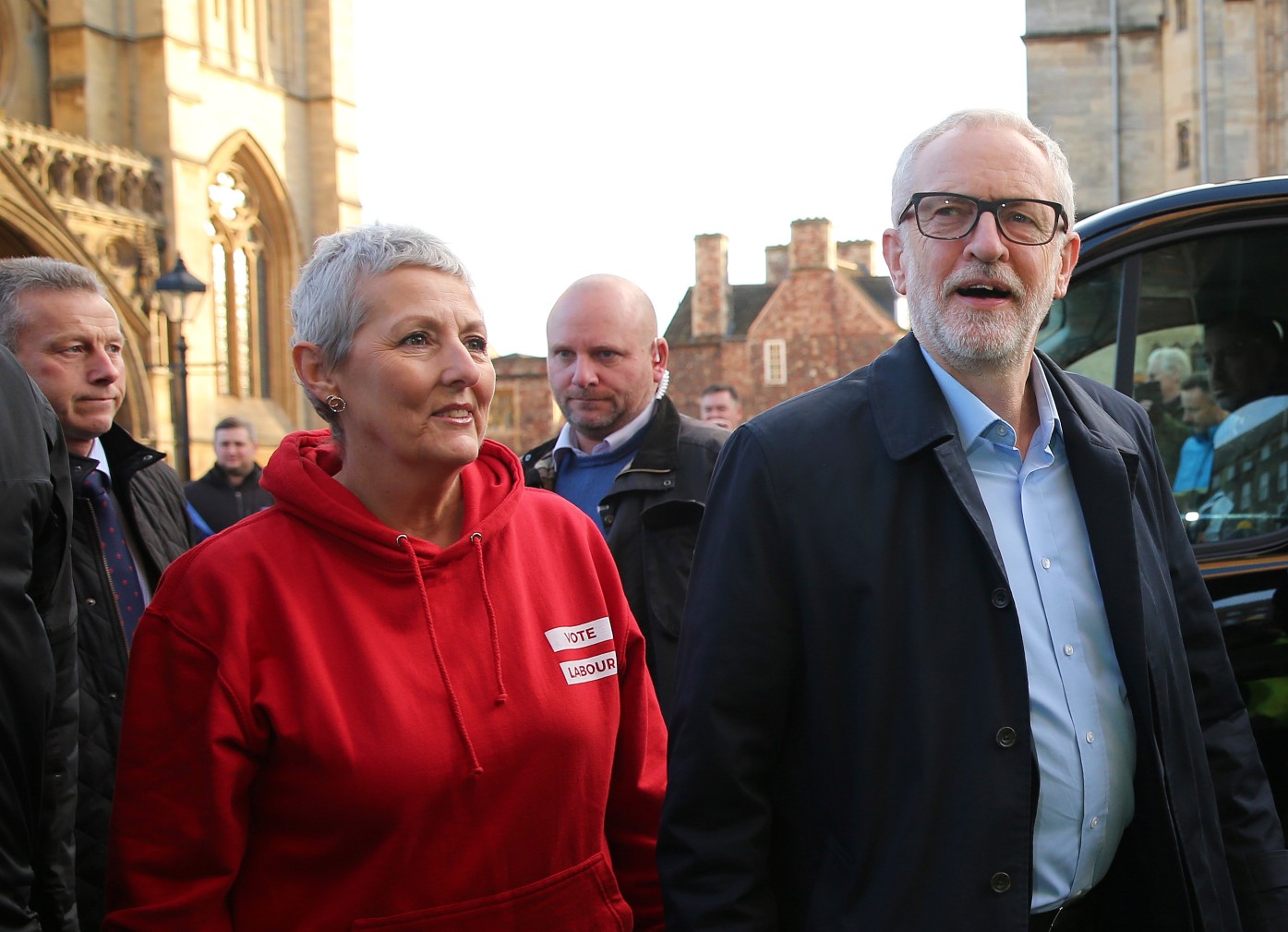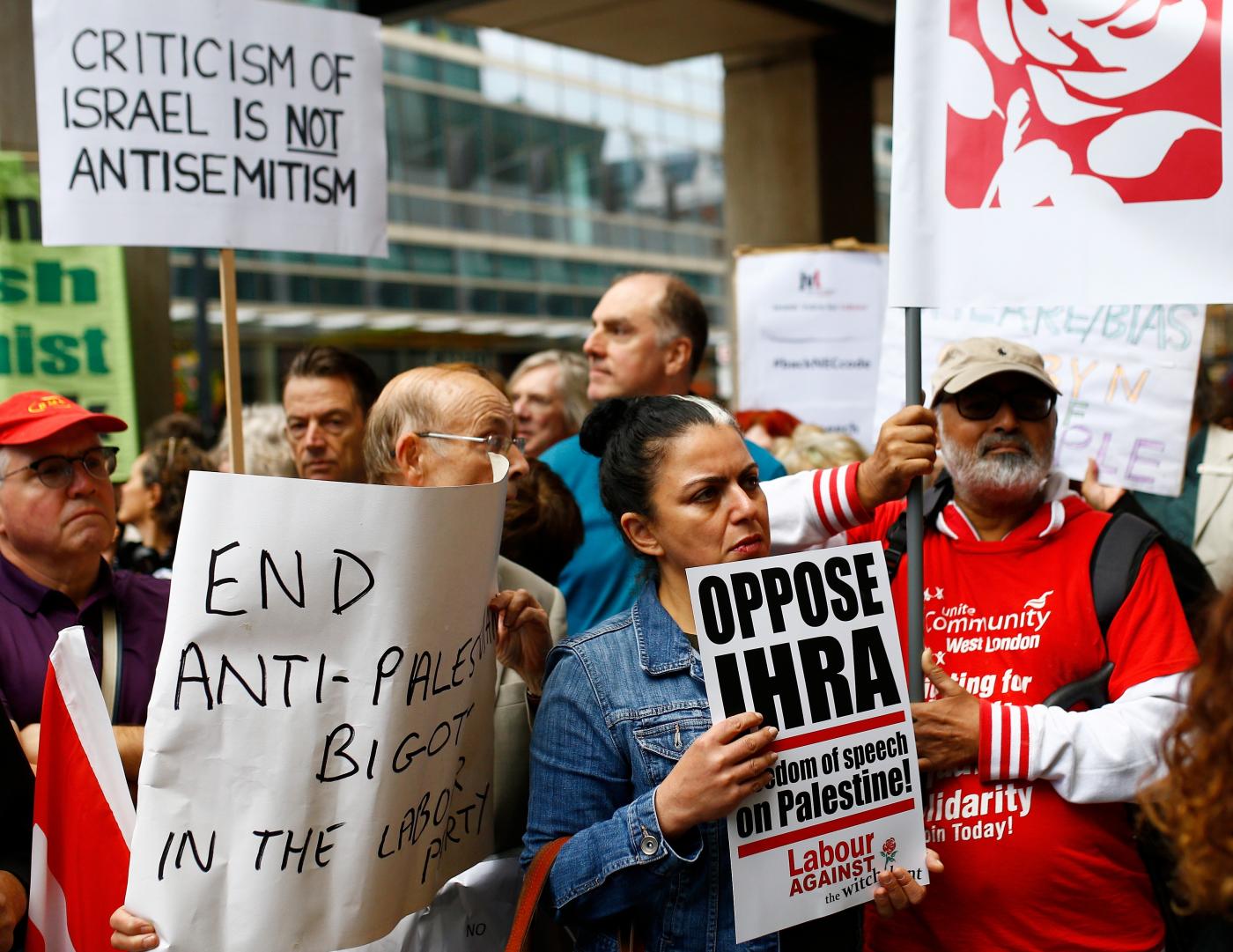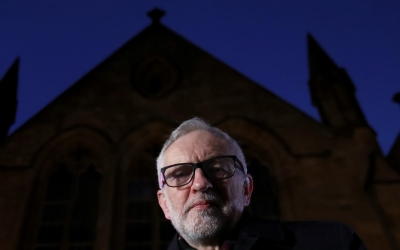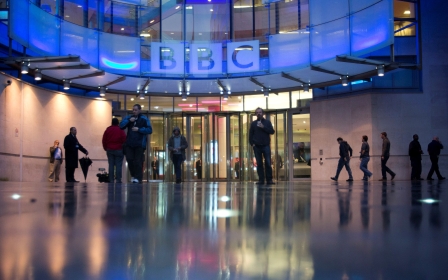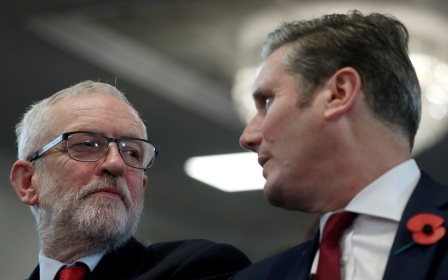Labour's Forde report is devastating on factional war against Corbyn
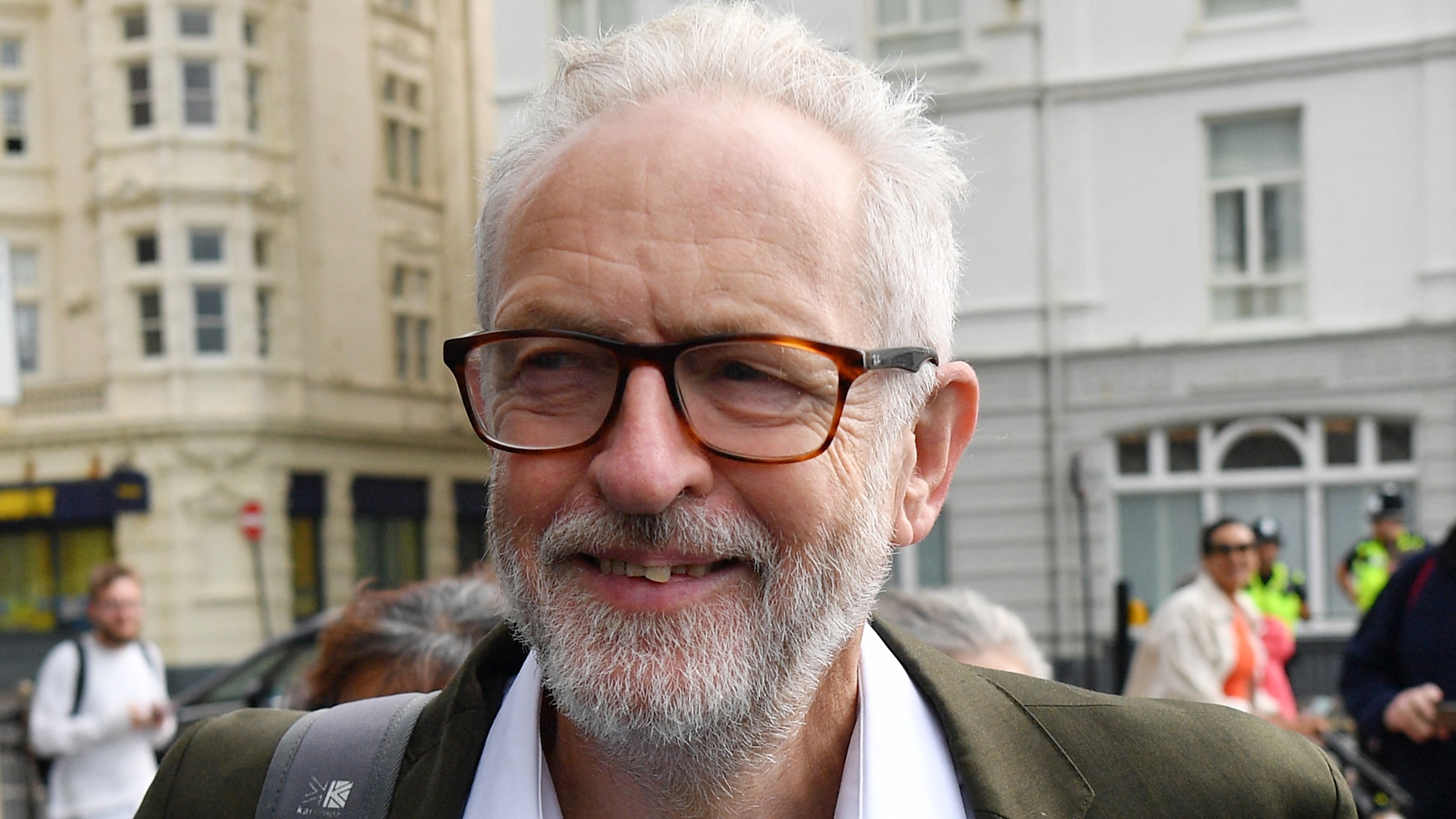
Well over two years have passed since Labour leader Keir Starmer invited eminent barrister Martin Forde to investigate Labour’s leaked report into antisemitism.
His report was due to be published by the end of 2020. It only saw the light of day this week.
Was it worth the time and effort? Emphatically not, according to the British media, which either ignored Forde or craftily adjusted his findings to make them conform to the general narrative about Jeremy Corbyn and antisemitism which shaped British politics in the run-up to the 2019 general election.
Hence the Daily Mail: "Corbyn’s allies used anti-semitism as 'factional weapon'". The Sun said the same.
Or the Telegraph headline: "Corbyn was silent says damning Labour anti-semitism report". Pippa Crerar of the Daily Mirror tweeted that: "Labour sources say Forde Report 'completely debunks the conspiracy theory' the 2017 general election was deliberately sabotaged by party staff opposed to Corbyn's leadership." And so on.
New MEE newsletter: Jerusalem Dispatch
Sign up to get the latest insights and analysis on Israel-Palestine, alongside Turkey Unpacked and other MEE newsletters
I have spent the last two days studying Forde. It is a far more serious piece of work than I expected. While some parts are radical, the press reporting – as always when it comes to Corbyn - does not reflect the facts.
Media misreporting
There is no question that Forde immersed himself in the subject. He’s looked at the evidence underlying the leaked report, and is more sympathetic than I expected to its much-maligned authors.
To be sure he stresses their youth, their lack of guidance, and lack of training on data protection issues. But he largely accepts the version of events set out in their report. They "sincerely considered" the report to be true, remarks Forde, "and to a degree we agree with them".
In consequence, Forde is devastating about media misreporting. He goes into granular detail about the emails leaked to the press in early 2019 which opened Corbyn to the devastating allegation that he intervened in the Labour Party disciplinary process in order to protect friends or supporters.
He cites BBC and Sky News as well as articles in the Times, Jewish Chronicle and Sun (“Jeremy Corbyn’s cronies 'meddle in Labour anti-semitism cases to stop their friends getting kicked out of party'”).
Forde says that it is “entirely misleading” to imply that the leaked emails were evidence that Corbyn’s office was “inserting themselves unbidden into the disciplinary process for factional reasons”.
This media narrative that Corbyn was actively intervening to stop antisemitism cases was deeply damaging to Labour Party chances in the run-up to the 2019 general election.
It was also, Forde makes clear, unsupported by the documentary evidence.
The investigation
Consequences should flow from this, because the original leaked report was criticised at the time as an exercise in self-justification by Corbyn supporters. It had been commissioned, remember, in the dying days of the Corbyn era to inform Labour’s response to the Equalities and Human Rights Commission inquiry into antisemitism inside the party.
The leaked report is - by any standards - probably the most detailed ever investigation into the internal workings of a political party, running to 860 pages long and drawing on tens of thousands of internal emails. It also deals with the contents of three very shocking WhatsApp groups used by senior staff at Labour headquarters.
It makes three central allegations: First, the Labour Party bureaucracy inherited by Corbyn from previous Labour leader Ed Miliband in September 2015 was ferociously hostile to the new leadership. Second, this bureaucracy was not only obstructive and uncooperative but worked actively to undermine Corbyn. Third, this bureaucracy was hopelessly inept at dealing with antisemitism.
The report did not suggest that this was a deliberate attempt to create embarrassment for the leadership. Instead, it speculated that officials had been distracted by a relentless focus on cases that served a more obvious factional agenda.
In early 2020 this bulky document landed with the full force of an unexploded bomb on the desk of incoming Labour leader Keir Starmer. It was then leaked. Starmer then hired Martin Forde QC in April 2020. He asked him to investigate three questions: Was the report true? Who leaked it? What changes to Labour Party organisation are needed?
Almost at once, Forde tartly records, he “started to receive emails from some of those named in the Leaked Report, and lawyers’ letters threatening me and other Panel members with legal action if we examined data referred to in it."
The legal threats have clearly irked him, and were perhaps an incentive not to name names.
Forde has since ducked the second of his original three terms of reference –to identify the leaker. This is because the Information Commissioner is compiling a separate investigation. But on the other matters Forde dutifully set about his task.
Antisemitism: A factional weapon
On antisemitism, he rightly criticises "denialists", but does not include among them the authors of the leaked report who, he says, have "a mature acknowledgement of the problem".
He sees a symmetry. Denialists on one side, and on the other people who "saw antisemitism as a means of attacking" Corbyn. Both sides used it as a "factional weapon".
'The Forde report confirms many claims made by the left about the Corbyn years. But its biggest flaw is its desperation to "both sides" each point'
- Alex Nunns, Corbyn's former speech writer
This is a bold statement because it can be seen as giving a measure of credibility to the claim by Corbyn, which led to his suspension from Labour, that the problem was “dramatically overstated for political reasons by our opponents inside and outside the party, as well as by much of the media."
Forde lacerates the Labour Party culture, calling the WhatsApp groups "deplorably factional and insensitive". On this unedifying topic he generally substantiates the leaked report, rejecting the suggestion the emails were selectively edited, although warning that the interpretation was occasionally "simplistic".
He rightly points to one instance where the report actually gives a misleading impression (page 26). Crucially he finds that members of the WhatsApp groups were focused on "protecting the party from Jeremy Corbyn rather than helping him to advance his agenda …. Some comments do appear to show straightforward attempts to hinder LOTO’s [Leader of the Opposition Office] work."
Forde is clearly shocked by the sordid language of the WhatsApp groups.
He quotes Diane Abbott, one notable target, at length: "We agree with Diane Abbott’s own comments that: 'None of this narrative was ever challenged by the other participants in the WhatsApp groups which leads to the conclusion that the remarks in the report were not outliers but represented the general tone of conversation amongst senior Labour Party staff about me and other black elected members. And it is worth noting that not a single member of the Senior Management Team or the Labour Party Forward Planning group was black."
An intellectual error
This leads Forde to speak of “concerns that the attention to the surge of cases relating to antisemitism and the importance they appeared to play in the interfactional conflict meant that the party was in effect operating a hierarchy of racism or of discrimination with other forms of racism and discrimination being ignored. For a party which seeks to be a standard bearer of progressive politics, equality, and workers’ rights, this is an untenable situation. The party must live by its values and lead by example.”
Forde is the second major non-partisan document to provide evidence suggesting that Corbyn has been the victim of a grotesque miscarriage of justice
It is surprising that this devastating conclusion has been almost completely ignored.
In general, Forde’s analysis of the Labour Party bureaucracy inherited by Corbyn is masterly. He draws out the comparison between the theoretical position of Labour Party permanent staff as neutral non-combatants serving an elected leader, and the role they actually played as right-wing sectarians bitterly opposed to Corbyn’s left-wing leadership.
In my view, however, Forde here allows himself to stray into intellectual error.
On the one hand, he firmly accepts the blatant factionalism of the party machine, saying “by 2015 the majority of the party’s senior staff did not see their roles as requiring neutrality, or even the appearance of it”. On the other, he presents the leadership’s attempt to confront this, or circumvent it, as a mirror image of the same phenomenon, ignoring the Labour bureaucracy’s constitutional obligation to serve the elected leader.
Alex Nunns, Corbyn's former speech writer, has made this point eloquently: "The Forde report confirms many claims made by the left about the Corbyn years. But its biggest flaw is its desperation to 'both sides' each point, as if an elected leadership with a mandate, and unelected staff resisting that mandate, are equally culpable for factional conflict."
This "both-sidesism" runs through the entire document. For instance, Forde reasonably concludes that the disciplinary process was “not fit for purpose”. Yet he doesn’t seem to make a significant distinction between the period when anti-Corbyn Iain McNicol was in charge and the pro-Corbyn Jenny Formby era.
I find this baffling because the difference is so striking. Between November 2016 and April 2018, the party failed to act on around 170 valid antisemitism complaints, according to the leaked report.
The number of notices of investigation, suspensions and expulsions connected to antisemitism all rose exponentially once McNicol, who had been general secretary from 2011 until 2018, was replaced in the spring of 2018 by Formby.
In 2019 there were 45 expulsions; in 2017 there had only been one. Forde does acknowledge that under Formby there were “undoubtedly improvements” but adds they were “reactive and somewhat piecemeal".
Only under Starmer, says Forde, have reforms on the scale required taken place. It is notable that in a report which is all about factionalism nowhere does he confront Starmer’s own overt factionalism – though Forde is undeniably entitled to retort that such an inflammatory observation would be well outside his remit.
Miscarriage of justice
I now turn to the radical part of his report. In one striking paragraph, Forde acknowledges the role of the Jewish Labour Movement in antisemitism training but crucially adds: “However, we do recognise that there are other voices amongst Jewish communities and Jewish members of the Party.
"Hence we are disappointed that there has been a refusal to engage at all with Jewish Voice for Labour’s (JVL) proposals for antisemitism education and that Constituency Labour Party (CLPs) are, we are told, not even allowed to enlist their help.”
Joe Glasman, head of political and government investigations at Campaign Against Antisemitism, has denounced what he calls a "ludicrous suggestion that the antisemitism-denial group and sham Jewish representative organisation, Jewish Voice for Labour, should not have been excluded from delivering antisemitism education to the party."
JVL, a socialist group which has long criticised Israel, has become a pariah organisation in the Starmer era. Forde’s recommendation that JVL should be given a role in antisemitism education is a bracing challenge to the Labour leadership.
Following the ECHR report, Forde is the second major non-partisan document to provide evidence suggesting that Corbyn has been the victim of a grotesque miscarriage of justice.
Forde has provided Starmer with an opportunity to put this right. He is unlikely to rise to the challenge because Starmer has fashioned himself as the nemesis of the Labour left and not a statesman who can bring together all factions of his great party.
The views expressed in this article belong to the author and do not necessarily reflect the editorial policy of Middle East Eye.
Middle East Eye delivers independent and unrivalled coverage and analysis of the Middle East, North Africa and beyond. To learn more about republishing this content and the associated fees, please fill out this form. More about MEE can be found here.



